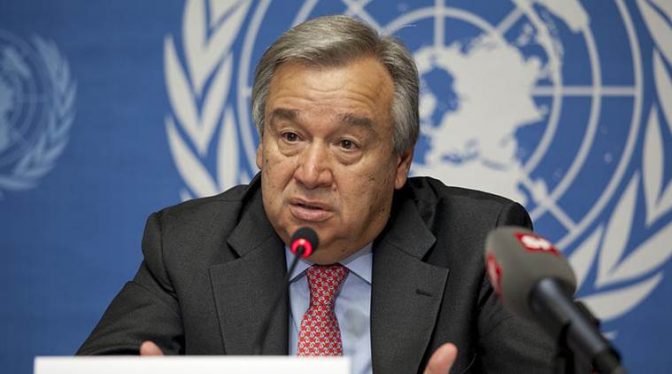Guterres Urges U.N. to Follow Portugal’s Lead on Drugs

In a joint statement on June 30, the United Nations and the World Health Organization called for “ending discrimination in health-care settings.” Among their suggestions was “reviewing and repealing punitive laws that have been proven to have negative health outcomes and that counter established public health evidence.”
Certain laws, they said, “have proven to be have negative outcomes” are ones that criminalize “drug use or possession for personal use.” In other words, the UN and WHO endorsed drug decriminalization.
As the UN General Assembly’s Special Session on Drugs (UNGASS) last year reaffirmed support for prohibitionist policies, one might wonder whether the UN-WHO statement foreshadows a more reform-friendly mindset at the international organization.
Mexico, Guatemala and Colombia, which have suffered a disproportionate share of violence associated with the drug trade, advocated a more “humane solution” during that special session, as did several other nations. But countries like Indonesia and Singapore defended their harshly prohibitionist policies.
Since then, however, former Portuguese Prime Minister Antonio Guterres has become Secretary General, taking office Jan. 1. Guterres was prime minister when Portugal decriminalized possession of all illicit drugs in 2001. Sixteen years later, average rates of drug consumption there are substantially lower than in any other country in the European Union. The Cato Institute, a leading U.S. libertarian think tank, has declared the policy “a resounding success.”
On June 26, Guterres called for honoring the commitments made during UNGASS to reduce drug trafficking, but he also pointed out Portugal’s experience. “I know from personal experience how an approach based on prevention and treatment can yield positive results,” he said in a statement. “Portugal now has one of the lowest death rates for drug use in Europe. Overall drug use rates have also fallen. I hope this experience will contribute to the discussion and encourage member states to continue exploring comprehensive and evidence-based solutions.”
If you enjoyed this Freedom Leaf article, subscribe to the magazine today!

